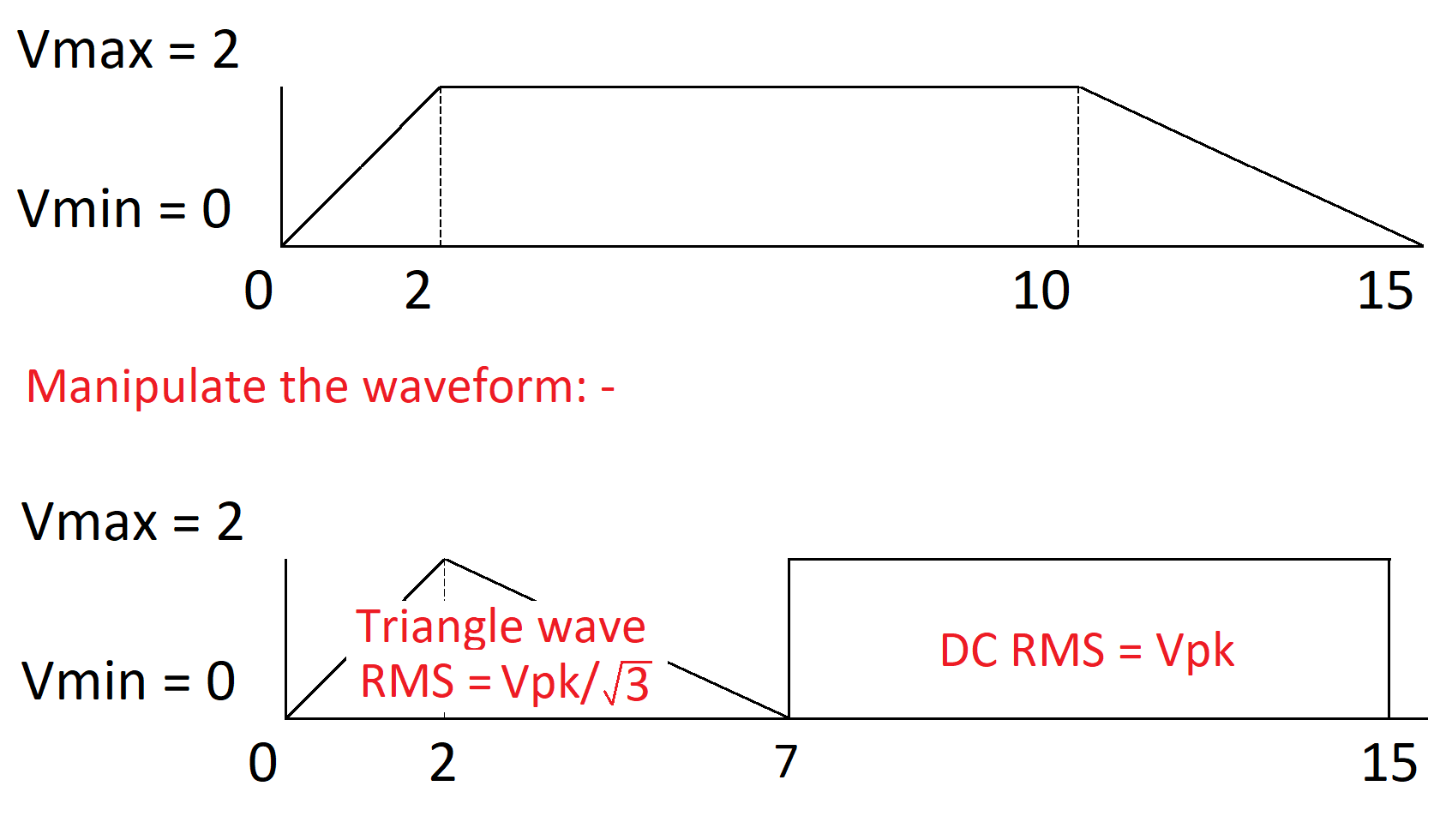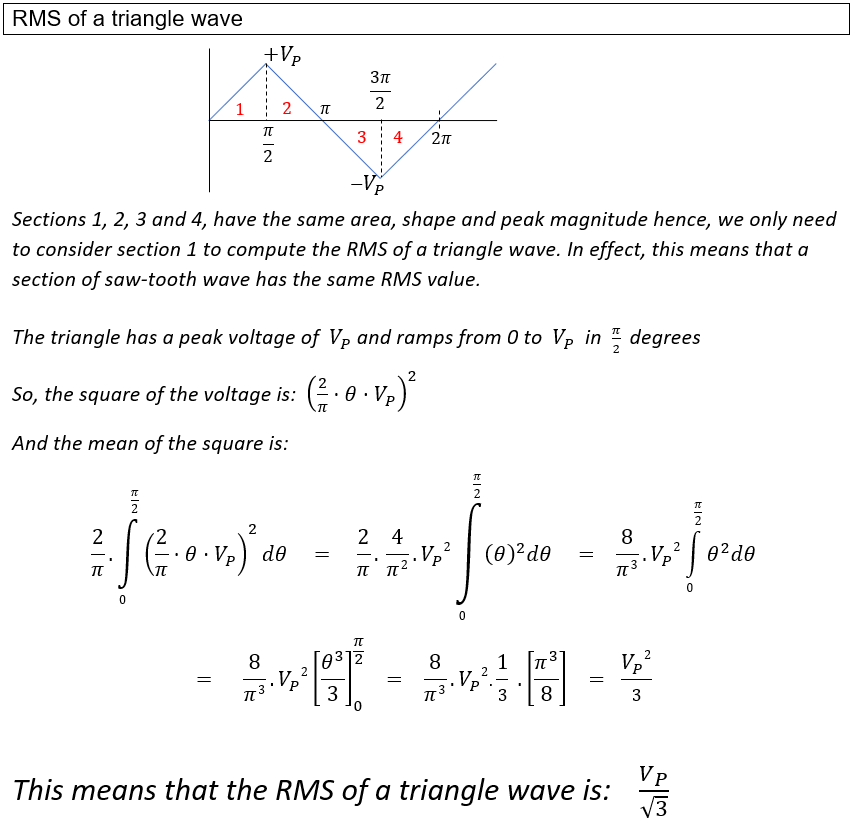This can be solved in a far simpler (and practical EE) way: -
To get the RMS value of the composite waveform, you: -
- Square the individual parts (triangle and DC) to get the respective powers into a 1 Ω resistor
- Weight them individually with their duty cycle
- Add the two weighted powers together and finally,
- Take the square root to get back to RMS voltage and lose the 1 Ω dependency.
- For the triangle section, it's weighted power is \$\frac{4}{3}\times 7\div 15\$
- For the DC part it's just \$4\times 8\div 15\$
- Add them to get 2.755555
- Take the square root to get 1.65998661307


